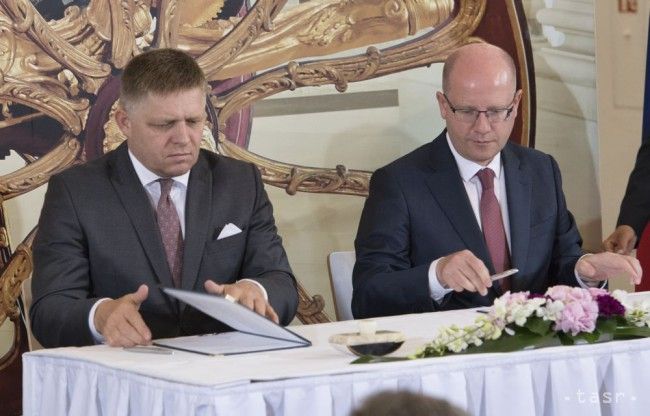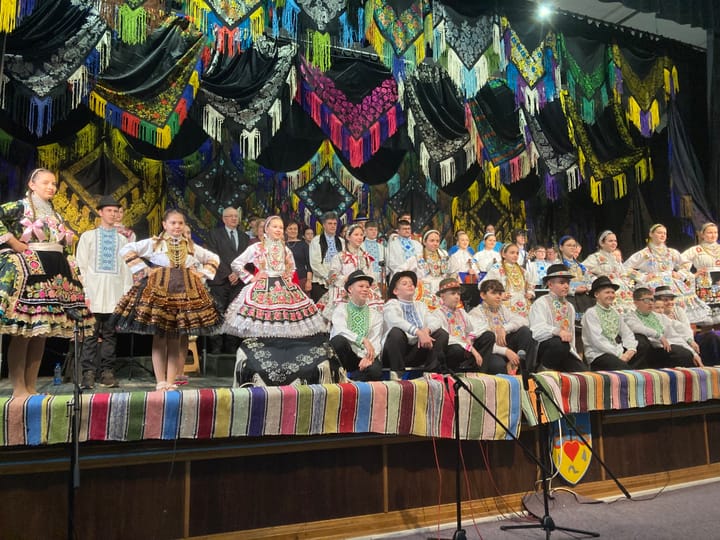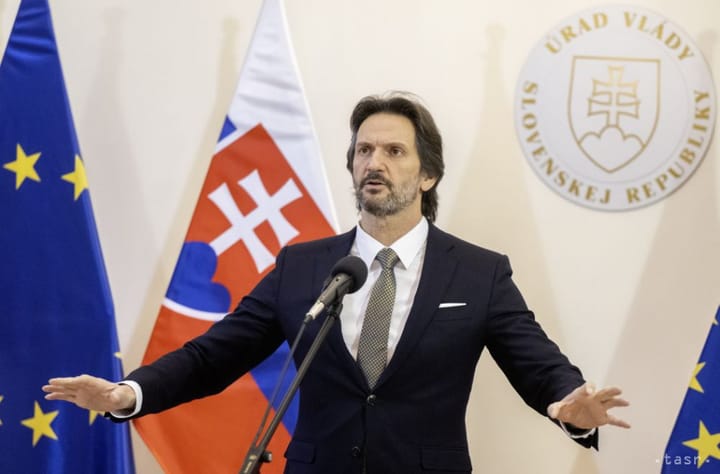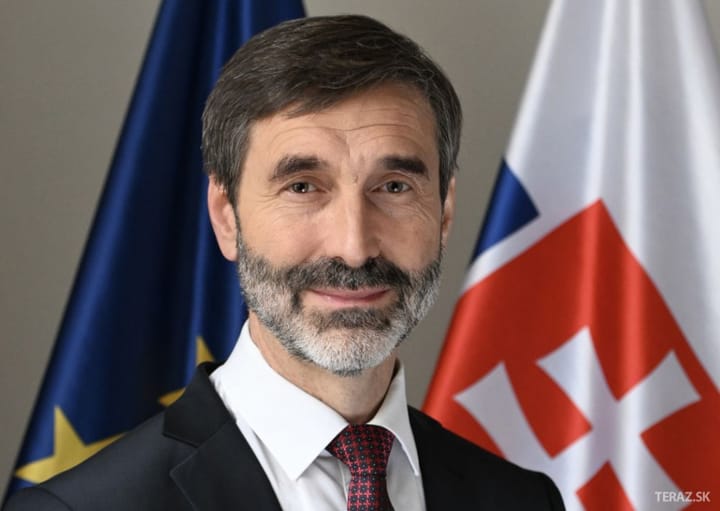Fico and Sobotka Ink Memorandum to Enhance Ties Further

Bratislava, September 4 (TASR) – This meeting has brought together countries that aren’t only democratic and close in the values that they cherish, but that are also experiencing great success at present, said Slovak Prime Minister Robert Fico at the conclusion of a joint session of the Slovak and Czech Cabinets at Lednice Castle in Moravia, the Czech Republic, on Monday.
“Two extraordinarily important governments met today. Ours was a meeting of two highly successful countries, and I believe that the agreements hammered out here only lend credence to the quality that we’ve attained together over 25 years,” said Fico. Czechoslovakia split on January 1, 1993.
The figures that the Slovak and Czech economies are posting are historic, said Fico. “This applies to economic growth, financial discipline, the unemployment rate, the rise in real salaries. And it’s our duty as prime ministers to promote these accomplishments because there’s a tendency to focus overly on the negatives,” said Fico.
Several agreements and memoranda were inked to conclude the fifth joint governmental session. Fico and his Czech peer Bohuslav Sobotka signed a declaration pledging their commitment to continue to deepen bilateral relations and ties in all areas and identified new priorities for collaboration, such as transport, security, internal affairs and the environment.
According to Sobotka, sound cooperation and a joint course of action between the two countries lay the groundwork for a stable and friendly atmosphere across central Europe. By coordinating their stances at EU level, the countries may better promote their national interests.
“Close links between the Slovak and Czech governments in the past four years have greatly contributed towards this. Both countries now have a stable position in Europe and NATO, and I firmly believe that the close cooperation and coordination will continue in the months and years to come,” said Sobotka.
The two Governments also discussed the coordination of joint events and celebrations scheduled for 2018, notably 100 years since the founding of Czechoslovakia, the 50th anniversary of the Prague Spring and the 25th anniversary of the independence of the Slovak and Czech Republics.
“We’re looking to produce a joint list of celebrations so as to ensure appropriate attendance of Czech and Slovak officials at key events,” said Sobotka.
Fico noted that 2018 shouldn’t be viewed as an “opportunity for a history seminar”.
“Indeed, reflections of historians and political scientists aren’t out of place, but we must use the special year towards two things – for a perfect presentation of the Czech and Slovak Republics abroad and to reassert the quality of our relationships. If we can’t do that, we’ll have failed,” said Fico.



